The mass of men lead lives of quiet desperation. What is called resignation is confirmed desperation.
Henry David Thoreau
Maboroshi no Hikari (1995) tells a story of Yumiko, a young widow who tries to make sense the death of her husband. She remarries again and finds joy and peace in the daily life, but she still can't stop questioning why her husband killed himself.
Maboroshi is a quiet and beautiful story. There are very minimal conversations and most of them are just daily conversations. We only sense the pain, the struggle, and emotion of Yumiko through her body language, her quiet contemplation when she's alone, and her involuntarily drift from her daily chores.
The star of the movie is the beautiful cinematography. The camera doesn't move. It decides the angle it will take for the particular scene and stays there. Most of the time, it decides to stay distant and at a low angle. It works really really well. Each scene is beautiful. The composition, the lighting, and the shadow are just right. I also love the small details that the director, Hirokazu Kore-Eda, emphasizes on many of the frames.
Watching this movie is like watching a play or reading a poetry. You become an active observant during the film. You empathize with Yumiko and you try to understand what she's thinking at that moment. You also appreciate scenes after scenes as if you are a museum attendance who can't help but admire the beautiful paintings on the wall.
I have to say that it is very refreshing to watch a film that really appreciates life for what it is; the struggle, the joy of the moment, and the acceptance of things unknown.
Since a picture speaks louder than words, below are some of my favorite images from the film (note that it was very hard to reduce it down to only 16 images):
Apology for the image quality, it breaks my heart but the only copy I have is a low resolution.
link: imdb

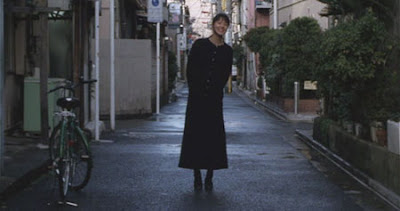


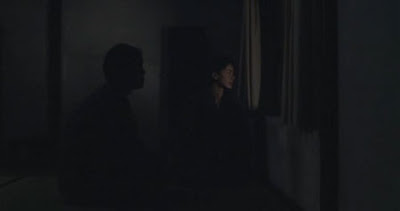
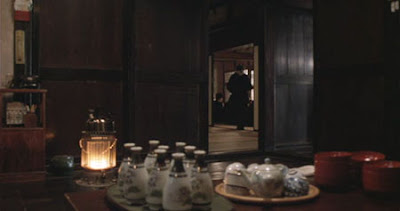
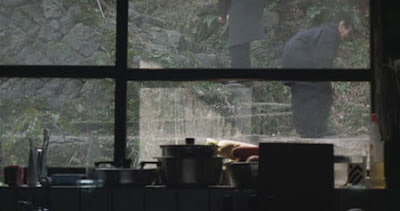




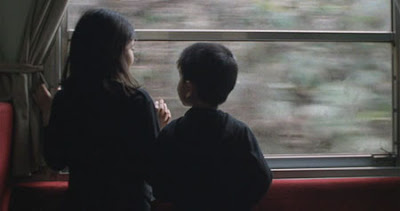





2 comments:
Hei, do you realize that a lot of Japanese movies have similar style? -minimal conversation with unique cinematography.
Love 'em, but sometimes the story can be a bit strange and they often leave the movie open-ended, like there's no really conclusion to what's gonna happen to the characters. Is it the case with this movie?
(Lend it to me when I go to Surabaya for our next reunion!)
Haha, I don't really watch a lot of Japanese movies to be able to confirm your view.
But, I think this movie has deliberately chosen to make the audience as observer.
The ending of the movie is good, very good, but some might say that it's open ended. The movie is about life, and in a way, that's how life is sometime right? You can't find an answer and an end to your question and journey.
Okay, have you external HD handy when you come here. I have few films to share :)
Post a Comment